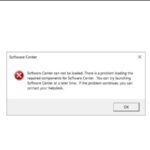What Does CRM Software Do? A Comprehensive Guide
In today’s competitive business landscape, building strong customer relationships is paramount to success. Customer relationship management (CRM) software has emerged as an indispensable tool for businesses of all sizes, enabling them to streamline interactions, enhance customer satisfaction, and ultimately drive revenue growth.
What is CRM Software?
CRM software is a suite of tools that helps businesses manage their interactions with current and potential customers. It acts as a central hub for all customer data, including contact information, purchase history, interactions, and preferences. By organizing and analyzing this data, CRM software empowers businesses to:
- Understand customer needs and preferences: By tracking customer interactions and analyzing their behavior, businesses can gain valuable insights into their target audience. This knowledge helps them tailor their marketing campaigns, product development efforts, and customer service strategies to better meet customer expectations.
- Improve customer engagement and loyalty: With a centralized view of customer data, businesses can personalize their communications, provide tailored recommendations, and offer targeted promotions. These efforts foster stronger customer relationships and increase loyalty.
- Optimize sales processes: CRM software streamlines the sales cycle by providing salespeople with access to critical information, such as customer history, leads, and opportunities. This helps them prioritize their efforts, identify potential deals, and close sales more efficiently.
- Enhance customer service efficiency: By centralizing customer support inquiries, CRM software enables agents to quickly access relevant information, track issues, and provide timely and personalized assistance. This improves customer satisfaction and reduces service costs.
- Track marketing campaign performance: CRM software allows businesses to track the performance of their marketing campaigns, measure ROI, and identify areas for improvement. This data-driven approach helps optimize marketing strategies and allocate resources more effectively.
Key Features of CRM Software
CRM software encompasses a range of features designed to address specific business needs. Some common features include:
- Contact Management: A central database for storing and managing customer information, including contact details, demographics, purchase history, and communication preferences.
- Sales Automation: Tools for automating sales tasks such as lead qualification, opportunity management, and quote generation. This helps sales teams work more efficiently and close deals faster.
- Marketing Automation: Features for automating marketing campaigns, including email marketing, social media marketing, and content marketing. This allows businesses to reach their target audience more effectively and track campaign performance.
- Customer Service Management: Tools for managing customer support inquiries, tracking issues, and providing personalized assistance. This ensures efficient and responsive customer service.
- Reporting and Analytics: Dashboards and reports that provide insights into customer behavior, sales performance, marketing effectiveness, and other key business metrics. This helps businesses identify trends, make data-driven decisions, and optimize their strategies.
Benefits of Using CRM Software
Implementing a CRM system offers numerous benefits for businesses, including:
- Improved customer satisfaction: By understanding customer needs and preferences, businesses can provide personalized experiences, enhance customer service, and build stronger relationships. This leads to higher customer satisfaction and loyalty.
- Increased sales and revenue: CRM software streamlines sales processes, helps identify potential deals, and enables targeted marketing efforts, ultimately leading to higher sales conversion rates and increased revenue.
- Enhanced operational efficiency: Automating tasks and processes, centralizing data, and providing real-time insights improve efficiency across departments, reducing wasted time and resources.
- Better decision-making: Access to comprehensive customer data and insightful reports enables businesses to make informed decisions based on real-time data, leading to improved strategies and outcomes.
- Competitive advantage: Businesses that leverage CRM software effectively gain a competitive advantage by building strong customer relationships, delivering personalized experiences, and exceeding customer expectations.
Types of CRM Software
CRM software comes in various forms, tailored to meet specific business needs. The most common types include:
- On-premise CRM: Software installed and hosted on a company’s own servers. This provides greater control over data security and customization options but requires significant upfront investment.
- Cloud-based CRM: Software accessed via the internet, hosted by a third-party provider. This offers flexibility, scalability, and lower upfront costs but relies on internet connectivity.
- Open-source CRM: Software that is freely available and customizable. This allows for greater flexibility and control but may require technical expertise to implement and maintain.
Choosing the Right CRM Software
Selecting the right CRM software is crucial for achieving desired outcomes. Consider the following factors when making your decision:
- Business size and industry: CRM software options cater to different business sizes and industries. Choose a solution that aligns with your specific needs and requirements.
- Features and functionalities: Identify the features that are essential for your business, such as contact management, sales automation, marketing automation, and customer service management.
- Integration capabilities: Ensure that the CRM software integrates seamlessly with existing systems and applications, such as email marketing platforms, accounting software, and social media platforms.
- Pricing and cost structure: Evaluate pricing models and costs associated with different CRM software options to find a solution that fits your budget.
- User-friendliness and ease of use: Opt for a CRM software that is intuitive and easy to use for all users, regardless of their technical expertise.
- Customer support and training: Ensure that the CRM provider offers adequate customer support, training resources, and documentation to help you get the most out of the software.
Conclusion
CRM software has become an indispensable tool for businesses seeking to improve customer relationships, drive revenue growth, and gain a competitive advantage. By centralizing customer data, automating tasks, and providing valuable insights, CRM software empowers businesses to understand their customers better, personalize interactions, and deliver exceptional experiences. Choosing the right CRM software based on your specific needs and requirements is essential for maximizing its benefits and achieving your business goals.







